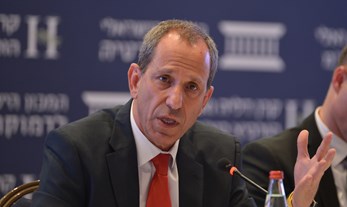

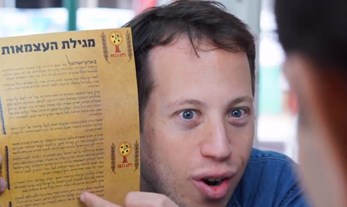
You can’t prepare a Nation State law the way you make a pizza!
Written By: Yohanan Plesner , Prof. Yuval Shany, Prof. Yedidia Z. Stern, Prof. Mordechai Kremnitzer
The nation state law is the "identity law" of the state, and this will have a revolutionary significance, since democracy is not mentioned in it.

How to battle government corruption?
In recent years we have seen one Prime Minister, several ministers and numerous mayors charged and convicted on corruption. But most people enter politics for idealistic reasons and with good intentions. So what went wrong?
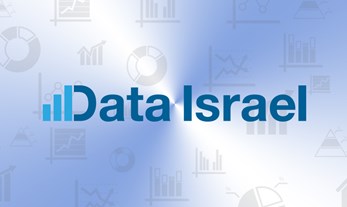
Data Israel
Written By: Prof. Tamar Hermann, Or Anabi, Tzipy Lazar-Shoef
In Honor of Israel's 70th Anniversary The Guttman Center for Public Opinion Research and Policy at the Israel Democracy Institute Is Launching “Data-Israel”: The largest and most encompassing online public opinion research database in Israel at the click of a button.
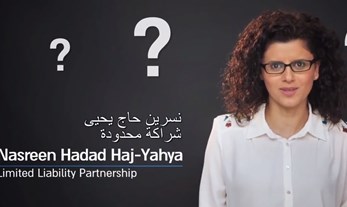
Limited Partnership: Arabs and Jews in Israel
On the complex relationship between Arabs and Jews in Israel and the secret to bringing down the walls of fear and prejudice
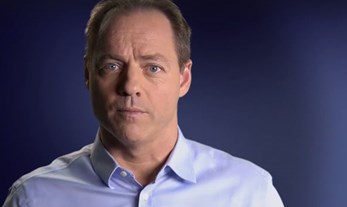
The Case for Substantive Democracy
As calls for a "majoritarian democracy" gain strength in Israel, IDI's President warns of the dangers associated with a tyranny of the majority, and makes the case for a richer interpretation of democracy, grounded in the principles of liberty, equality and the separation of powers.
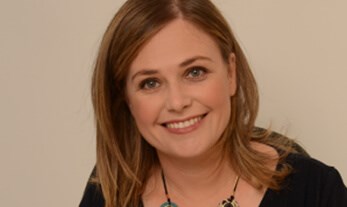
Is it Trump, Zuckerberg or Us - Whose Fault is Fake News?
"Weak media leads to fake news"
David Zeev (Reshet Bet) talks to Dr. Tehilla Shwartz Altshuler,
The panel: Is it Trump, Zuckerberg or US - Whose Fault is Fake News? was held at the Globes-Israel Business Conference in Jerusalem on January 11, 2018.

5 Things You Must Know About the ultra-Orthodox Community in Israel
How many ultra-Orthodox live in Israel today? How many will watch this clip on the internet? How are ultra-Orthodox women transforming their community? How many are employed? What age to they get married?

How Hard Is It to Do Business in Israel?
Written By: Daphna Aviram-Nitzan, Prof. Yuval Feldman
"In order to change this trend, we must increase the use of technological tools and behavioral economics."
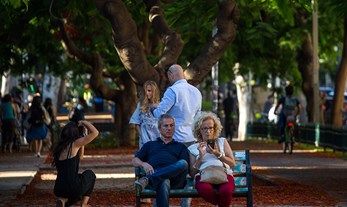
Peace Index: 40% of Israelis Believe that Rifts Between Groups Will Widen
Monthly survey also finds that 84.5% of Israeli public defines mood as good or very good while 43% expresses trust in Prime Minister Netanyahu.
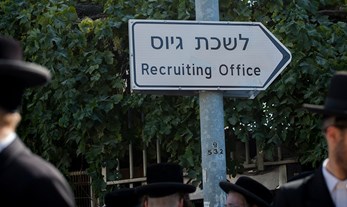
Supreme Court Strikes Down ultra-Orthodox Exemption From Military
Written By: Yohanan Plesner , Dr. Gilad Malach
IDI responds to high court ruling: “The time has come for our politicians to demonstrate leadership and work to enact a more equitable and effective arrangement.”

'Yes' to a Nation-State, 'No' to a Nationalistic State!
Leaders of the Israel Democracy Institute call for alternative proposal that would place nation-state of the Jewish people on equal footing with democratic obligation to equality for all Israeli citizens.

IDI Presents Outstanding Parliamentarian Award to MKs Elharar and Folkman
Knesset Speaker MK Yuli Edelstein: "It's time to bring the rules of the game back to the Knesset
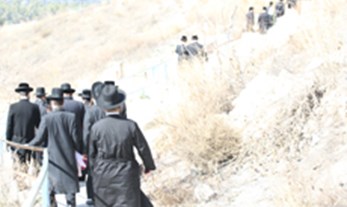
IDI Scholar Responds to Chief Rabbinate’s Blacklist
'There is no justification for preemptively disqualifying all rabbis and approving only those who have proven themselves to be kosher.'
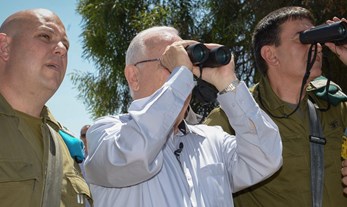
Three Years since Operation Protective Edge, Israeli Public Defines Israel’s Security Situation as Good
Latest Peace Index: More than half of Jewish and Arab Israelis see high chances of war between Hamas and Israel in coming year

New IDI Study Calls for Breaking Up the Religious Councils
Study results: Grave failures in the functioning of the councils and in the religious services they provide
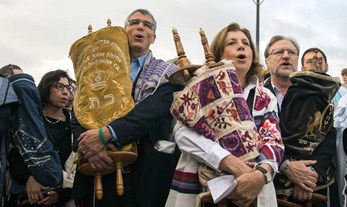
IDI Response to Western Wall Decision
'The longer we fail to give equal rights and recognition to the non-Orthodox streams of Judaism, the deeper the fissure between Israel and Jews of the Diaspora will become'
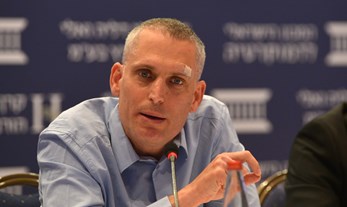
Deputy A-G Licht: ‘Reduction of Regulation Should Not Harm the Public or the Government'
Ministry of Finance’s Hizkiyahu: ‘Israel has an anti-business environment’
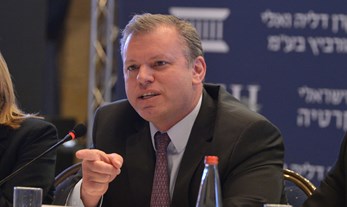
Eli Groner, Director-General, PMO: ‘When There is Excess Regulation, 99% of the Public Suffers and 1% Earns’
Day 2 of the Eli Hurvitz Conference on Economy and Society highlights challenges and solutions for Israel’s excess regulation and bureaucracy
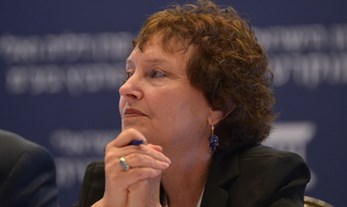
BOI Governor Flug Says Israeli Economy is ‘Not Renewing Enough’
‘In skills and problem solving, we are at the bottom [of international indices] and it is quite embarrassing for a country that is referred to as the Startup Nation,’ Flug said
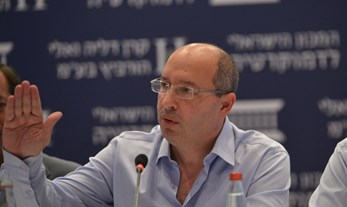
Avi Nissenkorn, Histadrut Labor Union Chair: Government has Failed to Fix Inconceivable Socioeconomic Gaps
Avi Simhon, PMO’s Office: Those without special skills will find themselves competing with China, the Philippines and Thailand
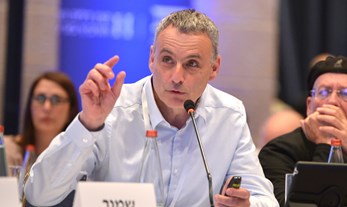
Prof. Nathan Sussman: Israel is in a vicious, downward economic cycle
Reem Younis of Alpha Omega: Arab engineers are being trained in Israel but leaving the country
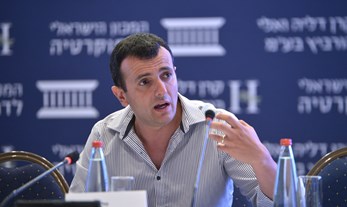
Ministry of Finance’s Babad: Stop Forcing Ultra-Orthodox to Study Core Curriculum, Consider Alternative Technology Track
Minister Bennett, Startup Nation Central's Kandel and Leumi Group’s Russak-Aminoach headline 2017 Eli Hurvitz Conference on Economy and Society
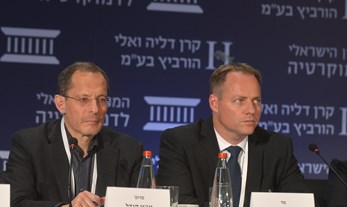
Two Economies - One Society: New Survey
Survey to serve as backdrop for discussion at Eli Hurvitz Conference on Economy and Society – June 19 and 20
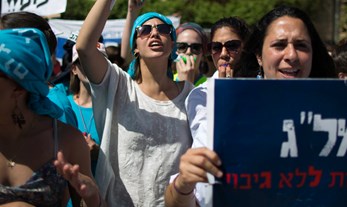
Proposed Ethics Code for Universities: IDI Leaders Respond to Minister Bennett and Members of the Council for Higher Education
‘Contrary to earlier reports, there is no similarity between the proposed code of ethics and the American code’

IDI Statement on Naftali Bennett's New Ethics Code
“Such an ethical code tramples freedom of expression with a heavy foot."

62% of Jewish Public: Holding onto Territories in Judea, Samaria Not An Occupation
Post Trump visit: 59% of Jewish public - low chance of U.S. President bringing Israelis, Palestinians back to negotiating table

Eli Hurvitz Conference on Economy and Society
With the featured participation of: Bank of Israel Governor, Education Minister, Economy Minister, Director-General of the Finance Ministry, Director-General of the Prime Minister Office, Chairman of the Histadrut Labor Federation, Director-General of Bank Leumi, Director General of Microsoft Israel and other VIPs

IDI Scholars Respond to Bill to Cancel Supreme Court Seniority System
The Israel Democracy Institute responded Thursday to the proposed bill to cancel the seniority system and deferral of deliberations on choosing Esther Hayut as the president of the Supreme Court, saying such steps harm the basic principles of the work of the judicial branch.

Police-Society Forum
Police-Society Forum convenes at IDI to discuss issues related to law, order and enforcement among Israeli citizens


